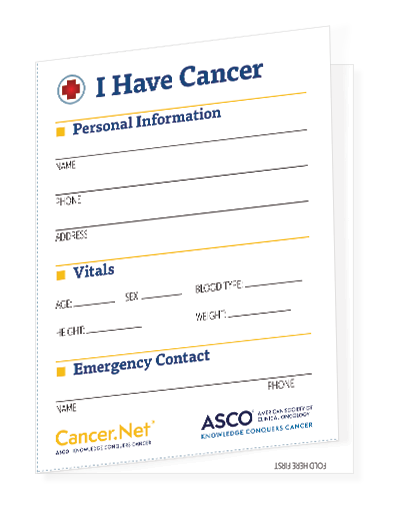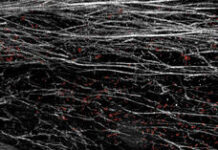As wildfires become more frequent and severe, more people are starting to see the effects of wildfires in their communities. Many people live in areas where their homes and other buildings are close to wildland vegetation that can quickly catch fire, endangering their safety and health. In fact, from 2011 to 2021, most Americans saw an increase in the number of days they were exposed to heavy wildfire smoke, according to a 2023 study published in the American Journal of Public Health.
Exposure to wildfire smoke is associated with health problems like asthma and other respiratory diseases. But can this exposure also increase your risk for cancer? Here, learn more about wildfires and cancer risk, as well as steps you can take to protect your overall health when the air quality is poor.
How can wildfire smoke impact your overall health?
Wildfires produce smoke with several components that pose health risks, including carbon monoxide, nitrogen oxides, volatile organic compounds, and particles like soot, dust, and heavy metals, which is called particle pollution.
Particles in wildfire smoke can make it difficult to breathe and trigger coughing or wheezing. Your risk for bronchitis, asthma, and an emergency room visit goes up when you’re exposed to wildfire smoke. And, certain groups of people are more vulnerable to the effects of wildfire smoke, including children, pregnant people, and people with asthma, other respiratory diseases, or cardiovascular disease.
Additionally, wildfires can burn structures, cars, and even plastic pipes underground, sending chemicals and ash into the water supply and soil. Wildfires also destroy plants and trees that hold soil in place, so erosion and flooding is common during wildfires, which can worsen the quality of drinking water. Finally, stress and displacement from wildfires can affect a person’s mental health and ability to access health care.
What does the research say about wildfire smoke and cancer risk?
One of the only studies evaluating the link between residential exposure to wildfires and cancer risk is a 2022 study by Canadian researchers that examined the long-term effects of exposure to wildfires on the incidence of lung cancer, brain tumors, non-Hodgkin lymphoma, multiple myeloma, and leukemia. The study included more than 2 million adults. In the study, after a median follow-up of 20 years, researchers observed small increases in risk for lung cancer and brain tumors in people who lived near wildfires compared to people who did not live near wildfires. In a separate 2022 study, researchers found that small particles from wildfire smoke were significantly associated with an increased risk of death from all types of cancer in Brazil’s population from 2010 to 2016.
Most research on wildfires and cancer risk focuses on wildland firefighters. Keep in mind that wildland firefighters have higher exposure to carcinogens, or cancer-causing agents, than most people because of their proximity to fires and the number of fires they fight in a season. Both a 2023 study and a 2021 study found elevated exposure to carcinogens such as benzene and formaldehyde among wildland firefighters. Carcinogens are substances known to cause cancer. A 2019 study also reported a 43% increased risk of lung cancer in wildland firefighters. And, in 2022, the International Agency on Research on Cancer reclassified being a firefighter as carcinogenic, the highest hazard category.
It is important to remember that there is a difference between an association with cancer being found and knowing for sure that cancer was caused by being exposed to something like wildfire smoke, said Daniel Boffa, MD, professor of surgery and clinical director of the Center for Thoracic Cancers at Yale School of Medicine. Dr. Boffa notes that it took a long time for researchers to determine that cigarette smoking caused lung cancer, for example, even after studying large groups of people who regularly smoked. And, while the chemicals in wildfire smoke are similar to those found in cigarettes, people experience wildfire smoke for much shorter periods of time. Because of this, determining cause-and-effect is challenging.
“Usually, people develop cancers many years after being exposed to a cancer-causing substance,” said Dr. Boffa. More research on the cancer risk associated with wildfire smoke will need to be done as people increasingly live closer to areas affected by wildfires.
How can wildfire smoke impact people with cancer?
Treatment for cancer could make you more vulnerable to the health effects of wildfire smoke. In a 2023 study, for example, people who had lung cancer surgery and were exposed to a wildfire during the first year of recovery were more likely to die than those not exposed to a wildfire. The threat was greatest during the first 3 months of recovery from lung cancer surgery.
“Disaster preparedness and response to wildfires should include strategies for identifying and contacting individuals recovering from lung surgery,” wrote Leticia Nogueira, PhD, MD, an author of the study. (Dr. Boffa also was listed as an author for this study.) Strategies that can help people with cancer prepare for exposure to wildfires may include carrying a portable medical information card with you, having an evacuation plan in place, and minimizing your exposure to contaminated air, water, and soil.
Download Cancer.Net’s free printable wallet card (PDF).
What can you do to protect yourself from wildfire smoke?
If the air quality in your area is poor, consider taking precautions to protect your overall health. Some of the steps you can take to protect yourself include:
-
Minimizing your time outside.
-
Keeping the windows in your home closed.
-
Wearing an N95 mask when you go outside, which can help block fine particles found in wildfire smoke.
-
Changing your central air filter or upgrading to a filter that blocks finer particles to help with indoor air quality.
If there is wildfire smoke in your area, check the air quality index before going outside, and trust your common sense about how the air feels when you are outside, notes Dr. Boffa. If the air looks smoky, you smell smoke, or it’s harder to breathe, you should take the precautions described above.
If you have been exposed to wildfire smoke, know that most people who are exposed do not suffer long-term consequences, says Dr. Boffa. However, talk with a member of your health care team if you are experiencing symptoms like a cough, shortness of breath, or difficulty breathing after being exposed to smoke.











